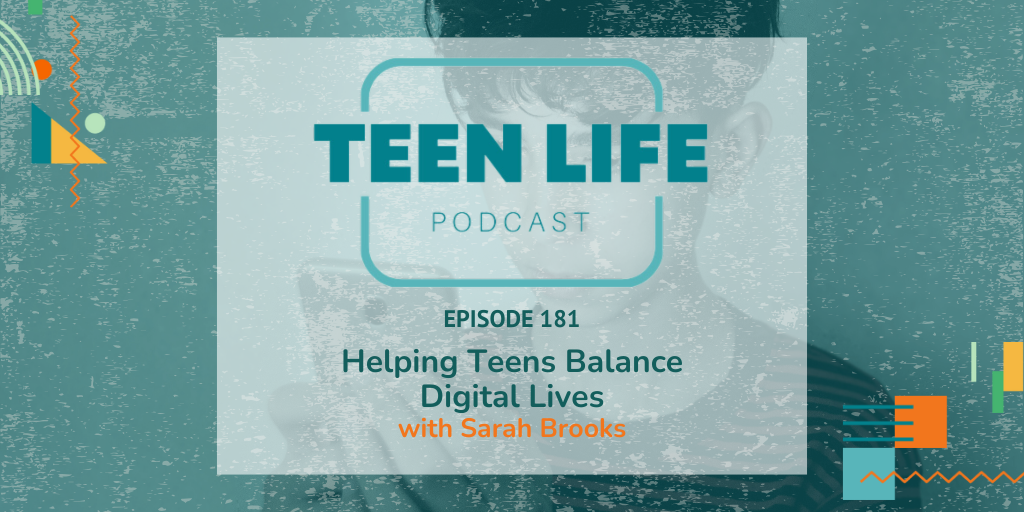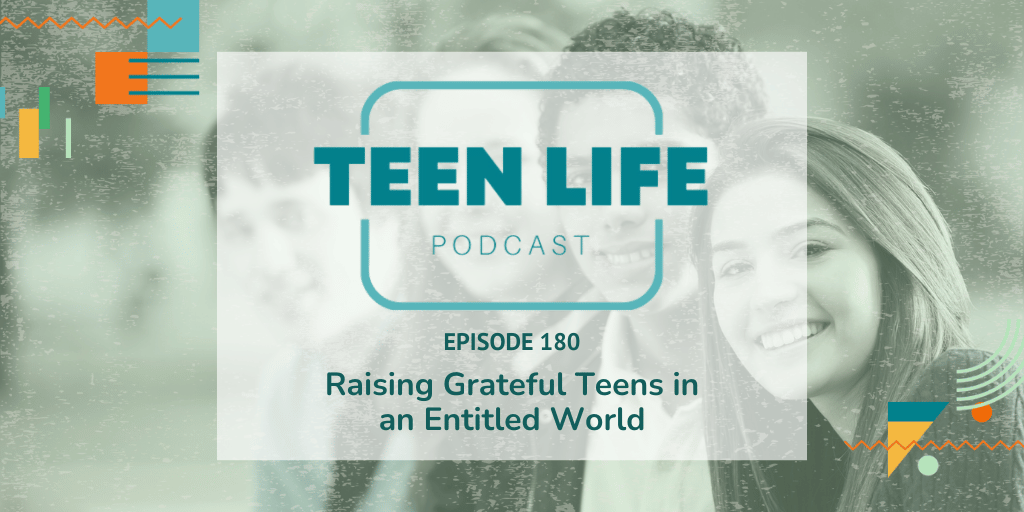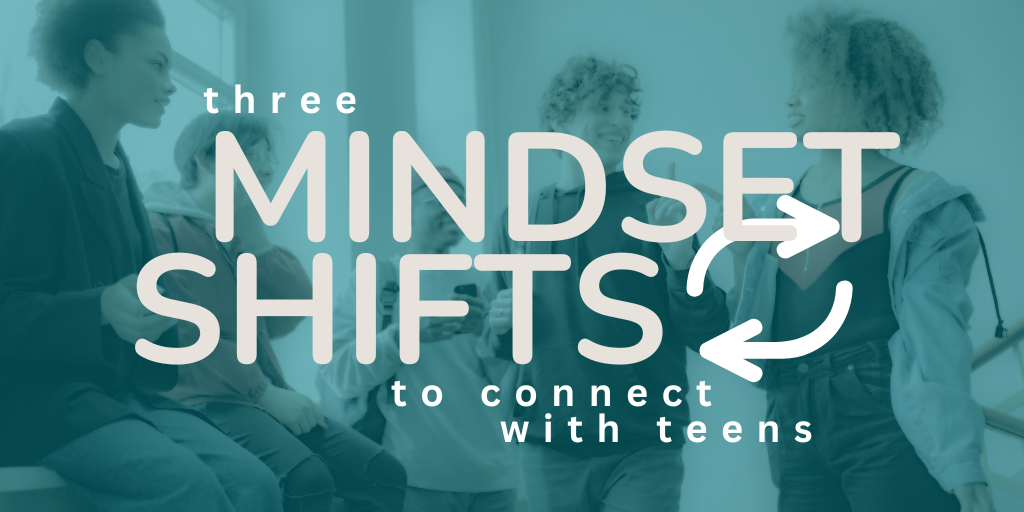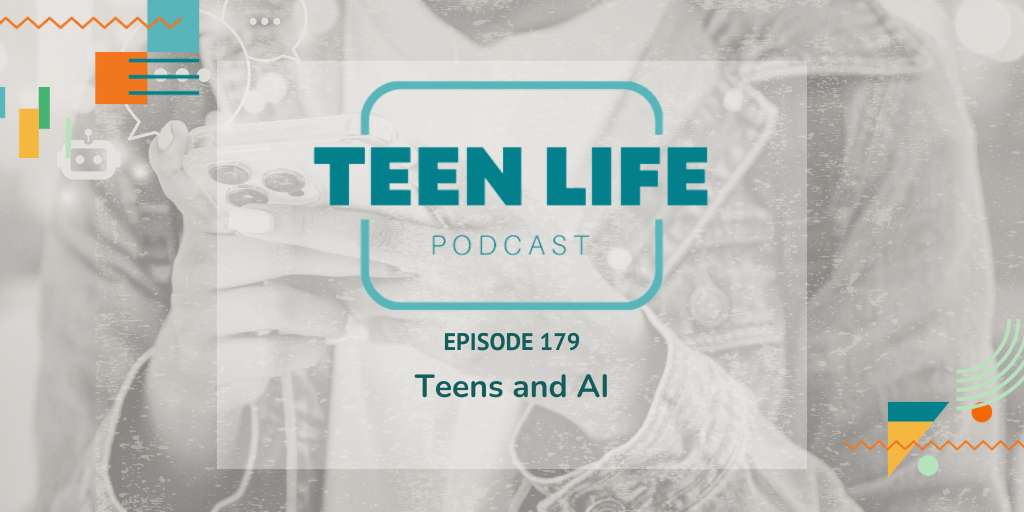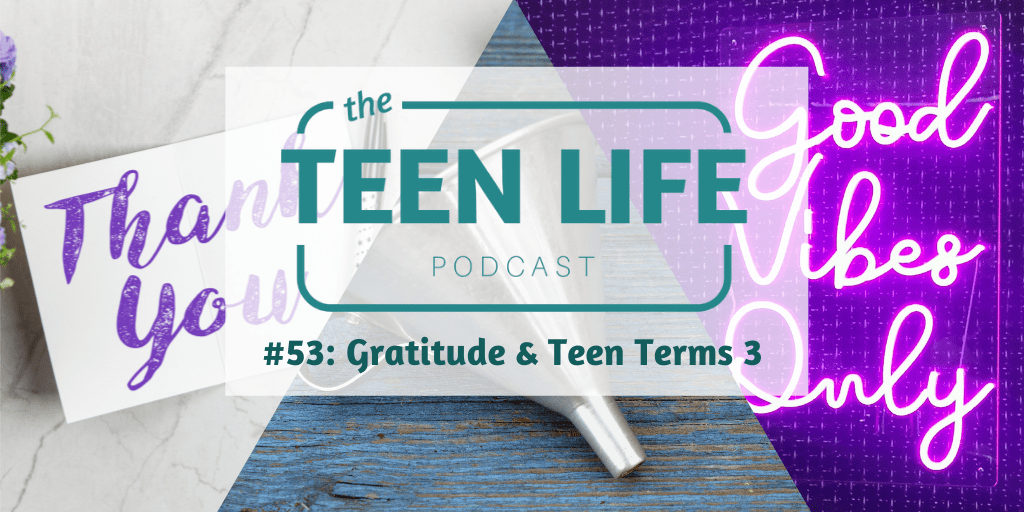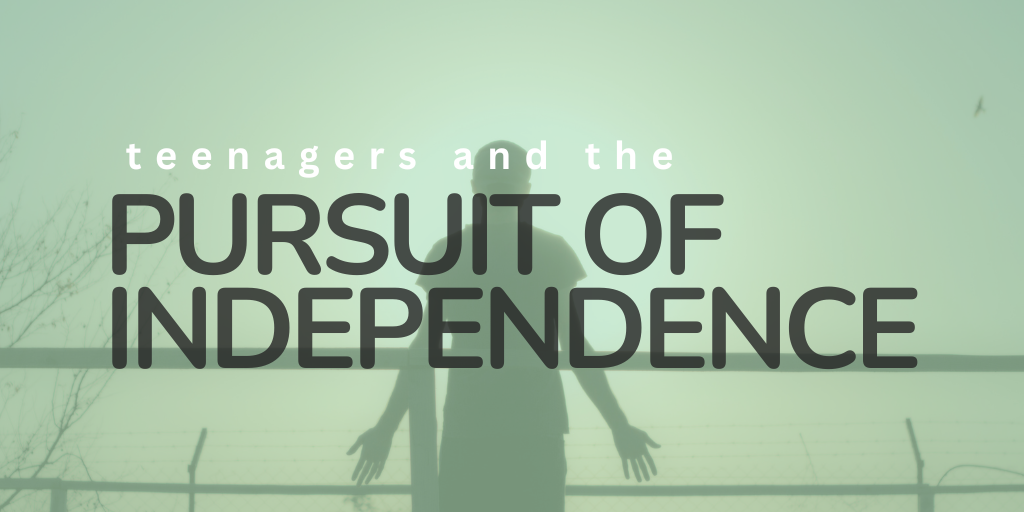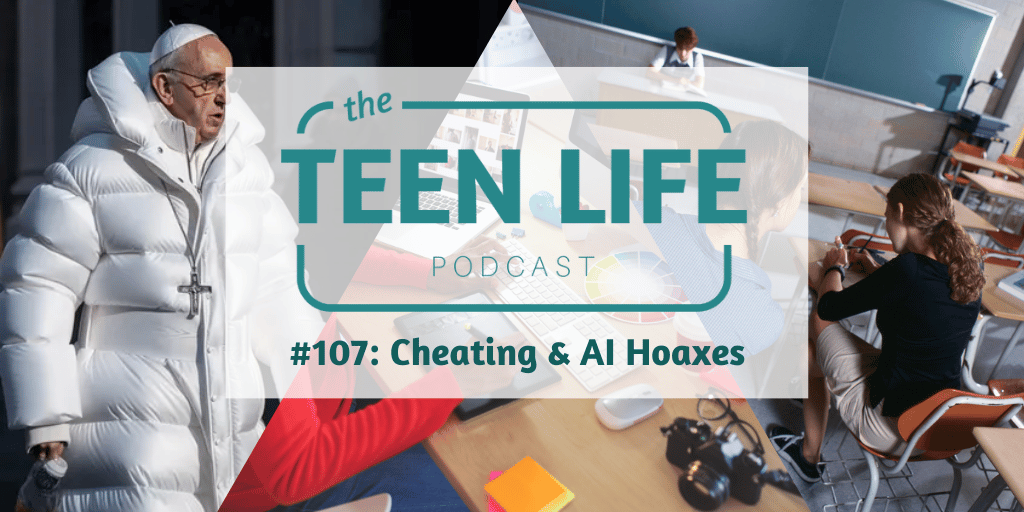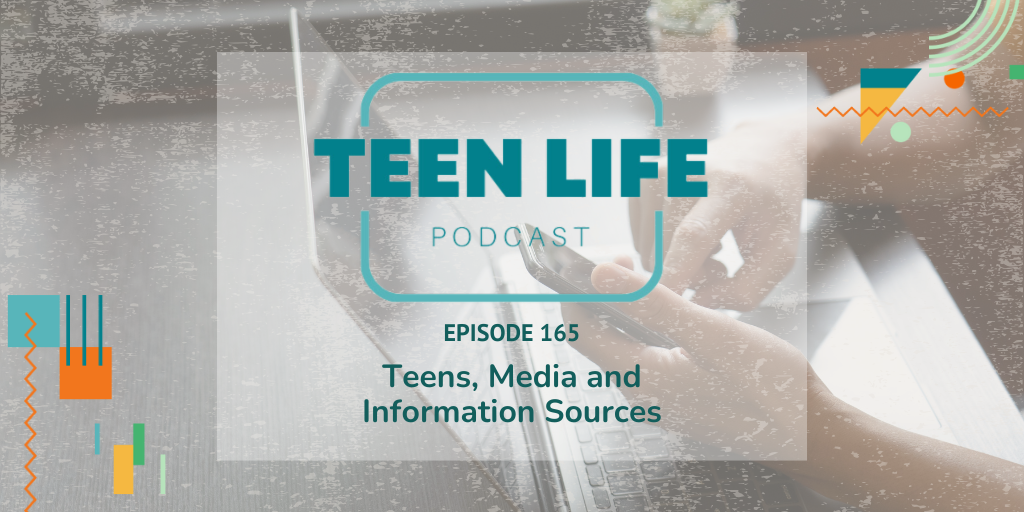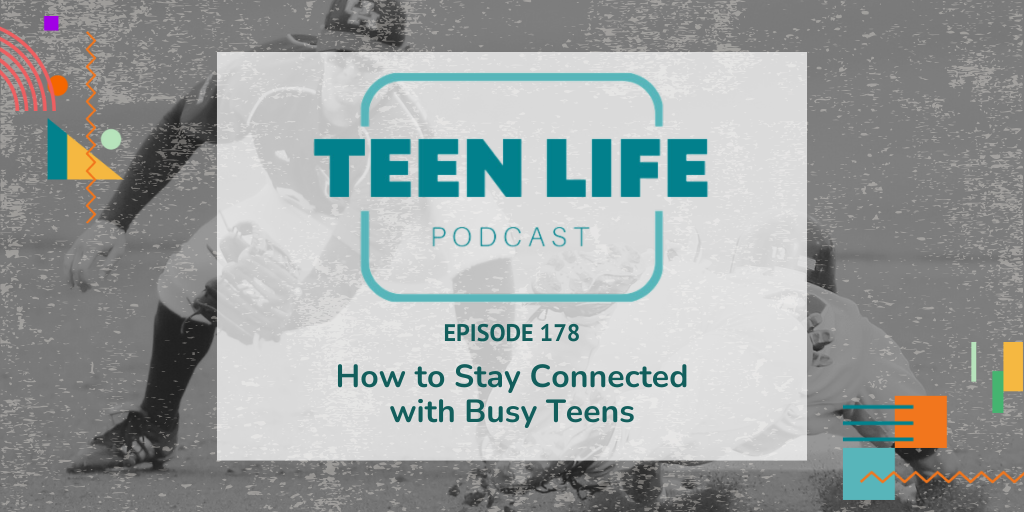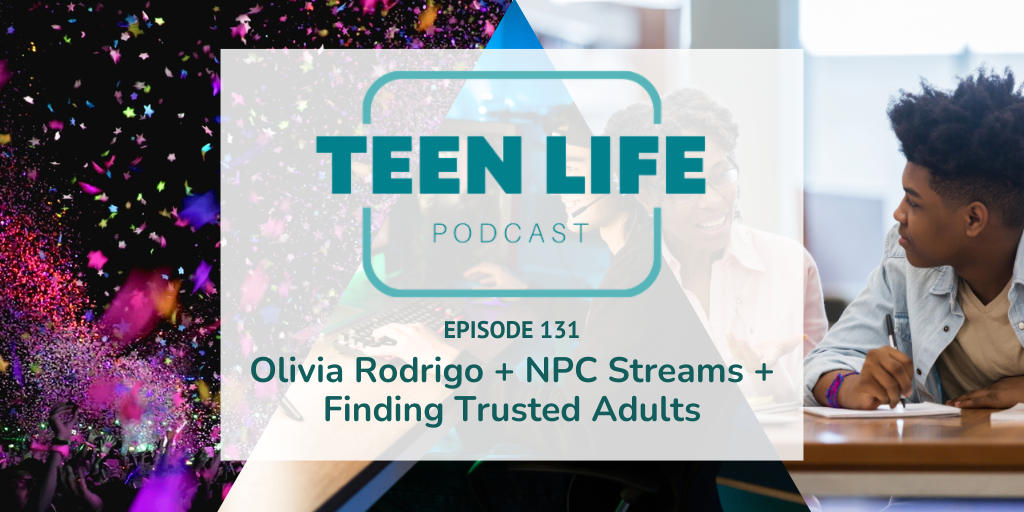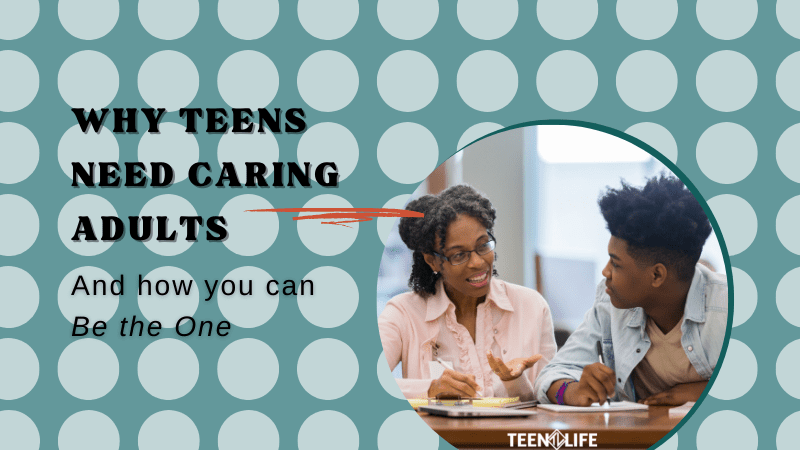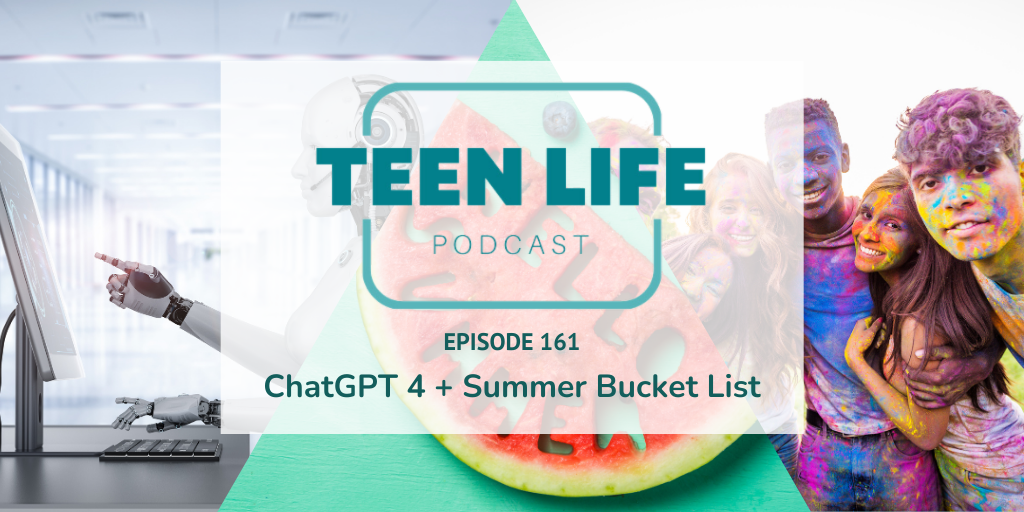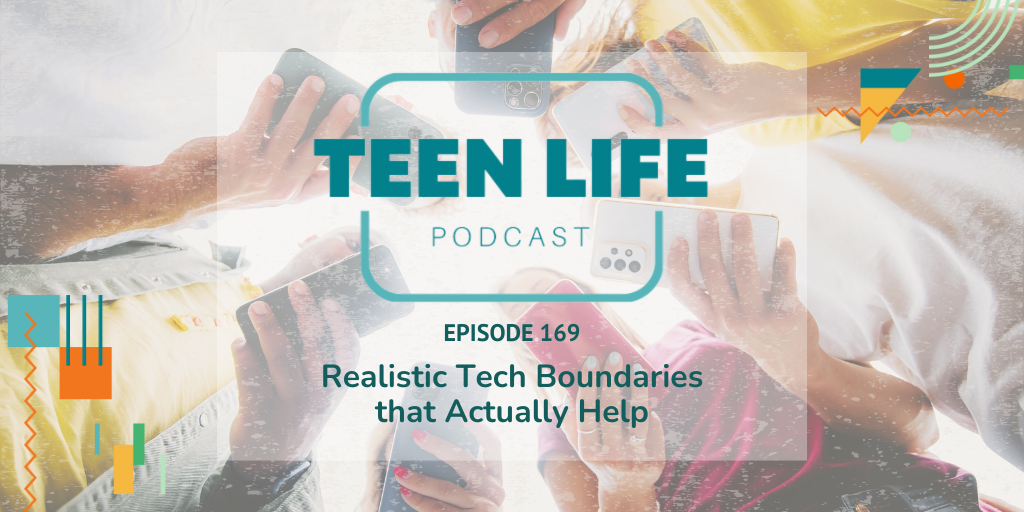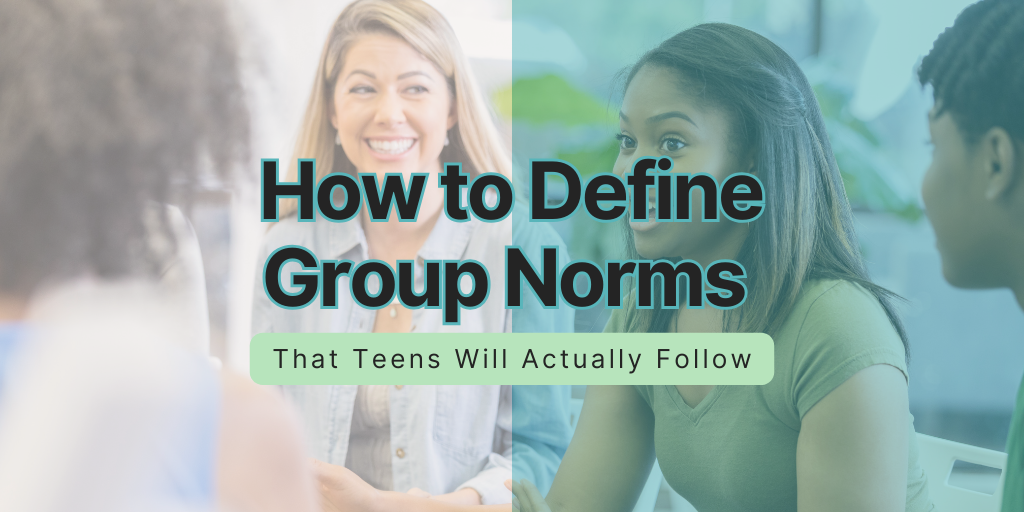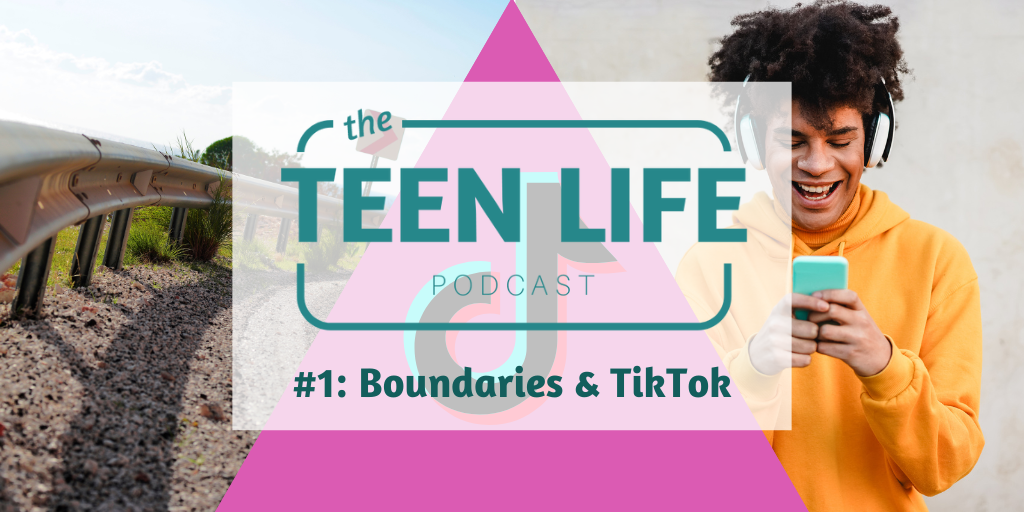Caleb Hatchett (00:00)
You’ve been mentioning boundaries on the podcast, but can you give some examples of what that looks like? Hi, welcome back this week. Again, you are stuck with me, Caleb, and Karlie, no Tobin. We do miss you Tobin. but yeah, we’ve been talking about boundaries a lot.
A couple of weeks ago, we talked about talking about sex and relationships with your teen, in which we talked about boundaries a bit, but we wanted to also, you know, give you guys a little bit more about what boundaries are, because I think they also extend beyond just relationships. So boundaries, to kind of define them, they aren’t about control, they’re about love and clarity, because…
teens don’t always show it, but they do like structure and they function better with structure. one of the ways that I like to view boundaries are kind of as guardrails, right? Like, you know, even if you think about on a highway or things like that, they, they keep you on path and make sure you don’t go, off-roading off of where you’re supposed to go. And we’ll kind of talk about this later, but you have to know where you want to go.
Karlie (00:53)
Mm-hmm.
Caleb Hatchett (01:13)
before you can know what is going to take you off track. And so for me, one of the things about defining a boundary, whether it’s in school, in relationships, emotionally, technologically, whatever, you have to decide, where’s my goal? Like, what do I want from this? And then define, how do I get there? And what are the things that are gonna keep me off track?
And so those boundaries are making sure that you stay focused on the goal.
Karlie (01:42)
Well, and if you’re using the example of a guardrail, you don’t want to hit a guardrail, but if you hit a guardrail, you’re not falling to your death. But the guardrail, where you really don’t want to be is in that canyon or over the side of the mountain. And so you set your guardrail just in enough to protect you from going that far. And so it’s not necessarily, you don’t put your guardrail in the canyon and be like, well, if you get there, it’s already too late. Bummer.
Caleb Hatchett (01:47)
Right.
Yeah.
Right.
Yeah, the car is torn to pieces, but at least I didn’t go further down the canyon. Yeah.
Karlie (02:11)
It’s so when you’re…
Right. So if you’re thinking in terms of a classroom, if you don’t want just utter chaos, then you need to set boundaries in enough to keep some peace as an example. so that’s a good point, Caleb. I really like that imagery of a guardrail and it’s to keep you safe and make sure everyone’s on the same page. In teen life groups, we call them norms because sometimes
Caleb Hatchett (02:32)
Yeah.
Karlie (02:39)
I don’t know that that term honestly is that much better, but sometimes when teens hear boundaries of or rules, hey, we’re gonna set some group rules. They’re like, what rules? I don’t, yeah. Of just, yes, this is what, it’s just what everyone is agreeing on of this is what is gonna be our normal. And then you can move forward from there.
Caleb Hatchett (02:44)
Yeah.
Norms is fun to say too so more fun than boundaries let’s talk about our norms yeah
Yeah. I think too, one of the most important things, especially again, like, like Karlie said, like you’re setting the boundaries here. make sure you’re setting them at the beginning of the group or at the beginning of a school year at the beginning of, you know, introducing technology at the beginning. Make sure everyone’s on the same page. Cause it’s easier to set boundaries first. Right. Cause again, if we’re going guard rail, we want to make sure we don’t fall off the bridge.
Karlie (03:19)
Mm.
Hahaha!
Caleb Hatchett (03:29)
And then if we realize, know
what, maybe we have a little more space. We can move them a little bit further, right? It’s, easier to set boundaries and loosen up on them later than to crack down after unstated boundaries or norms have been set. I remember starting out as a student minister right out of college and I’m leading a middle school, small group, middle school boys. And, know, I might, I’m 20.
Karlie (03:51)
Okay. Okay.
Caleb Hatchett (03:56)
23 at the time, but you know, I, I have the maturity level of a middle school boy. So yeah, you know, I’m sitting there, you know, I can talk skibbity riz, Ohio with them all day, whatever. And I remember there is specifically like one small group where, you know, I hadn’t really established boundaries. And if you don’t establish a norm, norms will be set. Right. Regardless.
Karlie (04:18)
Hmm. Mm-hmm.
Caleb Hatchett (04:20)
Like they will be set norms will be established because this is going to be what is normal in this group. And so if you don’t establish them, they’re going to get set where you do not want them. And so I remember we do our highs and lows, whoops and poops, whatever you call them. That’s a good one. I could go on for days. Rose and a thorn. Happy crappy. There’s a lot. Okay. There’s good. I can, I can keep going. Okay. Whoops and poops is my favorite because they go, here’s my whoop.
Karlie (04:37)
my word.
Caleb Hatchett (04:48)
for the week, you know, had a really good lunch and here’s my poop. And then people get to chuckle, which is you’re talking about your poo. Um, so any group leaders out there, you’re like, you can thank me later for the whoop and the poop. anyways, we, we do that. And then we’re trying to train. I’m trying to transition into my small group questions about the lesson that I, I assume did such a good job at. And.
Karlie (05:01)
Okay. Okay.
Caleb Hatchett (05:14)
I asked him the first question and they are just off the rails. Just could not care any less about what I have to say. They’re talking to each other. I remember I say guys, seriously, we need to focus. They’re like, he’s serious. okay. I’m serious. And I was like, my word. Cause I had established this norm in this relationship with them that I’m just a bud.
Karlie (05:34)
you
Caleb Hatchett (05:38)
And this norm that there’s no respect that there doesn’t need to be respect between them and me, between them and each other. And like, I remit this set me off. And I set, yeah, I set the small group guide down. I said, we’re done. Y’all can do whatever. And I had to go to the bathroom because I could feel my temper rising. I went to the bathroom. I took a few deep breaths.
Karlie (05:47)
You were triggered.
Caleb Hatchett (06:00)
And I go back out there and they’re all just sitting there and they’re like, what in the world? They don’t know what to do. Like, can we really go play foosball now? And I go and I was like, it’s the first time I’ve ever gained access to, I call it like my dad voice. I raised my voice very stern. Say, listen, like, I don’t want this to just be school. I don’t want you to feel like you have to be there. I can’t make you be here.
and at Jenks Church in the youth group, like you chose to be here, but I want this to be a space where we respect each other and you respect me and at least give each other that. And I just kind of remember, you know, they were shocked. I think one kid who was kind of the ringleader of the chaos, like his face turned red. I think he started to cry a little, felt a little good. but you know, it’s harder to crack down on things once if you haven’t established the boundaries.
Karlie (06:36)
Mm-hmm.
No.
Right.
Caleb Hatchett (06:53)
first. And, you know, if we’re talking boundaries at school, boundaries in, you know, a group, small group setting, learn from my mistakes and set expectations and boundaries for respect. You don’t have to agree on everything, but we will listen and respond with respect to me, to each other.
Karlie (07:00)
Mm-hmm.
Mm-hmm.
Right? This is a big one in our teen life groups. And often what I say is, you don’t have to be here. I don’t have to be here. So let’s respect each other and let’s respect our time. I’m gonna respect your time. I’m asking that you respect my time while we’re here. And so even giving that back makes a difference. If you’re not just saying you need it, and you said that, Caleb but you’re not just saying, you will respect me because I’m an adult.
Caleb Hatchett (07:25)
Mm-hmm.
Mm.
Yeah.
Karlie (07:39)
but be like, I’m
also gonna respect you. I’m not gonna make you do something you don’t wanna do. I’m not going to bore you using things that are, we’re going to do this together and I’m gonna give you that same back, not interrupting when someone is speaking plays into that. So if you’re wanting to like drill down of like what goes into respect, not interrupting when someone’s speaking, using I statements instead of blaming.
Caleb Hatchett (07:43)
Yeah.
Yeah.
Mm-hmm.
Yeah.
Karlie (08:04)
I feel instead of you always do this, like if you’re talking in a group, not laughing or mocking other people’s thoughts or experiences. Oftentimes you’re not even, but this is something that happens a lot in groups. Side talk, where two people are talking to each other and they start laughing while someone else is sharing and they are probably not laughing about what that student is sharing. But if they are sharing something serious and there’s laughter, they’re immediately thinking they’re laughing at me.
Caleb Hatchett (08:06)
Hmm.
Yes.
Karlie (08:31)
And I’ve had to stop down a group before to say, Hey, you’re not paying attention. this is probably asking that student, Hey, how did you feel when they were laughing? And having that, like just pointing that out and those students, was girls and they were like, that’s not what we were talking about. And I was like, I get that. But that’s not also respectful that you’re laughing and having your own conversation while she’s trying to share something that’s important to her. And so, but if you say that upfront, then you can also come back to.
Caleb Hatchett (08:40)
Mmm.
Yeah.
Karlie (09:01)
We talked about this, remember? No side talking. That’s something we agreed on as a group and you can point it out and then you can just move on. You’re not having to like stop down and make this a big deal. Another example that I gave, and this kind of also goes into like making sure everyone feels safe to share, especially in a group or in a school setting. One time I had a student that I asked a question.
Caleb Hatchett (09:20)
Mm.
Karlie (09:25)
I honestly don’t remember what the question was. Maybe it was about relationships and the student goes, well, I know that he doesn’t have relationship with his dad and pointed out something about another student. And so I quickly was like, okay, hang on. you can only share about yourself. We’re not sharing someone else’s story. That is not your job. That is not your role to make sure everyone feels safe that they don’t have someone else who’s gonna be like, well, she just broke up with her boyfriend and here’s why.
Caleb Hatchett (09:42)
Hmm.
Yeah.
Karlie (09:51)
We’re not getting into that. And so if they don’t feel comfortable speaking, don’t make them speak. That’s a big thing. I know, but like, I say, I say that, I straight up say, I am not going to make you talk if you don’t want to talk. If you tell me, I don’t want to talk about that, I will move on. And that’s an easy boundary to make sure everyone feels safe. But…
Caleb Hatchett (09:59)
The worst. Yeah, it needs.
Yeah.
Mm-hmm.
Karlie (10:17)
Participation too. I often say, but you will participate. You’re going to fill out the sheet. You’re going to write something down. And then there are certain things where if we do an icebreaker of, just tell me something good that happened this week. You can participate in that. You can come up with. I had a good night’s sleep. I ate Taco Bell for lunch. was great. Yes.
Caleb Hatchett (10:19)
Yeah. Mm-hmm. Yeah.
Mm-hmm. Yes. You’re right. That, and that’s, has to be something good. Yeah. When we do the,
what do we do? There are times, yes, to pick and choose, but I get, know, from the one side, you’re like, want everyone to participate and get the most out of this. But I promise you, you making a student who doesn’t want to talk is maybe for them going to be getting the least out of it. Like if they don’t want to talk and people are different.
Karlie (10:54)
Mm-hmm.
Caleb Hatchett (10:57)
And so forcing someone to talk, who might just be sitting back and still being active, but not necessarily showing it in the way that you want to is perfectly fine. and it sets the expectation, right? That, Hey, I’m not going to push you where you don’t want to be pushed, but I am going to also set the expectation of wanting you to be part of the group and knowing that you’re still part of the group, even if you’re maybe not actively participating in.
Karlie (11:12)
Mm-hmm.
Mm-hmm.
Caleb Hatchett (11:23)
discussion that you don’t be a part of. Like it’s, it will be okay. And I like what you said too, about still finding ways to involve them in the small things that, you know, and set the expectations that you should participate in talking about your Taco Bell, cheesy Gordita crunch. Okay. We can find ways. Yeah. And I think even part of that is making sure if it’s in a group setting, that they’re part of the circle. you know, that’s, that’s a norm that I’ve noticed is, is
Karlie (11:36)
Mm-hmm.
Wonderful.
And then I think.
Mm, yeah.
Caleb Hatchett (11:53)
good and you know if someone comes in late if someone doesn’t is automatically placing themselves outside of the group even just making sure hey here we all sit in the circle and even the small thing of making sure it is a circle to make sure everyone feels apart making sure everyone can see each other in a conversation is being made is just another good norm
Karlie (12:03)
Mm-hmm. Mm-hmm.
And then I think a final one for school group, church groups that is key is what shared in this group stays in this group. I always, always, so this is another boundary and maybe practical piece in my teen life groups, I always follow that up with, unless you’re talking about hurting yourself or hurting someone else or someone hurting you. And then I do have to share that. So I let them know upfront.
Caleb Hatchett (12:20)
Mm-hmm.
Karlie (12:44)
We talked about that last episode a little bit. Like if someone is in danger or their safety is at risk, I will share that. But what’s said in this group stays in this group, which means I’m not gonna go call your parent, but also you’re not gonna go outside of here and gossip and tell people what we talked about. Everyone needs to feel safe in this classroom. And that’s not a like we’re hiding something, but just if you’re…
Caleb Hatchett (12:46)
Yeah.
Yeah. Yeah.
Karlie (13:11)
talking about sensitive topics. If someone is talking about, I’m really struggling in this class and I need help, we don’t need to go share that outside of this classroom. That can stay here and we can get that student the help that they need without going and being like, you’ll never guess what grade so-and-so got. And he just got reamed by the teacher. Like that’s not, we don’t need to go sharing that stuff. It’s great. It can stay here.
Caleb Hatchett (13:19)
Yeah.
Mm-hmm.
Yeah. Yeah.
And I think too, like even going back to what we said initially about boundaries and we’re going to just, you know, we’ve talked about school church, kind of a group setting, and we’re going to talk, give you more examples. But again, if if you look back at it through this lens of what’s the goal, right? Asking yourself when we’re setting a boundary, like, what do we want to be true about this classroom, about this group, right? We want it to be a safe space where everyone respects and trusts each other.
Karlie (13:50)
Mm.
Hmm.
Caleb Hatchett (14:02)
And we can, you know, discuss freely and get somewhere. Right. And then you’ll notice we’re setting expectations for respect, clear expectations. So everyone feels safe, making sure no one is talking when others are talking. all helps you achieve that goal. And, know, as, we’re talking boundaries, you know, we’re asking ourselves, what are the regrets or things we want to avoid?
Karlie (14:06)
Yeah.
Mm-hmm.
Caleb Hatchett (14:26)
And what are the boundaries that align with those goals? And so as we continue to talk about all these other different boundaries, again, that’s the lens that we’re kind of looking at it through. And it cannot apply to so much more than just what we’re talking about. So another way that I think we see boundaries played out, especially with parents, teens, adults and teens, is technology.
Karlie (14:39)
Mm-hmm.
Caleb Hatchett (14:49)
setting boundaries on technology and, what do we, what do we want? We’ve done a lot of episodes on technology. And I think one of the things that we ask ourselves is how do we get technology to work for us? You know, versus the other way around. cause teens often push for more tech freedom, but they need guidance to avoid burnout, harmful content, unhealthy habits. So what are some norms or boundaries that we can establish with technology?
Karlie (15:00)
Mm-hmm.
I think I admittedly have not finished this book. So I’m going to say this and know that I am still working on it. But The Anxious Generation came out last year and it was a big book that a lot of people are reading. It is dense. will warn you. Like it has studies, which is great. Lots of stats, but good stuff. Like everything I’ve read, I’m like, wow. But one thing that was brought up in that book that I was like, man, that is so true is
Caleb Hatchett (15:28)
Mm-hmm. lot of stats.
Karlie (15:40)
are this generation of parents went like, I’m not going to let my student or my child play in the street because that’s dangerous. They could get kidnapped. So I’m going to hand them this phone or this iPad or this TV that has Netflix and a million different shows and that’s safer. And we didn’t put boundaries on them. Like you handed this
Caleb Hatchett (15:52)
Yeah.
Mm-hmm.
Yeah.
Karlie (16:07)
And I’m saying you in general, but that doesn’t mean that every parent did this, but we handed kids technology that we didn’t fully understand without giving them boundaries and guardrails to protect them like you would out in the real world. And you tighten down in one area and then went free rain. Here you go. YouTube, just have fun and it’s safer. And it’s way, way more dangerous. Like when I’m looking at some of the things that my kids could accidentally stumble on, on a
Caleb Hatchett (16:09)
Yeah.
Mm-hmm.
Yeah.
Yeah.
Karlie (16:36)
on our Apple TV with me in the room, I’m like, go play in the street. That might be safer. I don’t know. And so when we’re talking about technology, making sure, like Caleb was saying, the goal is for them to use it for them. The goal is not to form a new addiction. It’s not to have access to stuff that they shouldn’t have access to. It is for connection.
I feel like we’ve talked about this before, but especially with technology, some families choose to do a technology contract. Schools, a lot of time this choice is taken away from you because the school has policies of maybe it’s a phone holder in your classroom or maybe they turn them in or maybe they can’t bring them to school at all. So you might not have as much say in this, but there are ways that we can.
Caleb Hatchett (17:03)
Hmm.
Mm-hmm.
Karlie (17:22)
do technology well that also works for the team. Because if you just say, sorry, zero technology ever, that’s probably also not realistic. And so talking about
Caleb Hatchett (17:27)
You’re
Mm-hmm.
And helping them,
you know, even that contract helps them understand and come like, you know, it’s an agreed decision between the both of you. But I think even with some good ideas, and again, you have to decide for yourself, what is the goal that you’re setting and then build the boundaries around them. And so, you know, as we’re talking, we’re just giving ideas, but creating phone free zones, you know, even applies back to the last one and small groups and schools, things like that of, you know, are these working for us or against us? You know, no phones at the dinner table.
Karlie (17:39)
Mm-hmm.
Caleb Hatchett (18:03)
No phones whenever you’re going to sleep. Where would you benefit from most of not having your phone and establishing that can be good. Setting boundaries around new apps, social media, making sure that you’re not spending too much time on one thing and are prioritizing other things beyond that. And one of the difficulties with this is especially modeling it in your life as well.
Karlie (18:10)
Mm-hmm.
Hmm.
Right. As a parent, if you say, hey, we’re going to have phone free zones, we’re not going to have our phone at the table, but you have your phone and you’re texting at the table or someone calls you and you step away to take a phone call. Like you have to model that too. As a teacher, if you say, hey, in my classroom, we’re not going to do phones. Now there are maybe times where something big is happening at home and I have to have my phone out today. Tell them that they’re old enough to take that. But.
Caleb Hatchett (18:50)
Yeah.
Mm.
Karlie (18:55)
knowing that this also applies to me. If you’re worried, I think about this a lot and so this is something I’m admitting on the podcast I need to work on. It scares me to think about my kids one day driving with a phone, thinking them looking at their phone, texting, scrolling, but I have to model that first. So if in my mind,
Caleb Hatchett (19:09)
Yeah.
Karlie (19:19)
I’m a better driver. I’ll only look at it when I’m stopped at stoplights or when I’m going slow or if I’m, just trying to find the song real quick on Spotify. But your student, your teen is watching you going, well, I can have my fun out while I’m drive because mom does or dad does. And so modeling that is almost the hardest part because you have to be intentional about what you’re doing too, but that matters a lot. And then when it comes to relationships,
Caleb Hatchett (19:28)
Yeah.
Mm-hmm. Yeah.
Yes.
Karlie (19:45)
We talked about when we did the talking about sex and relationships episode that we want teens to have healthy relationships. That’s the goal. And without guidance, so not just in romantic relationships, but we don’t want them to have toxic friendships. We don’t want them to feel pressured to say yes because they feel pressure from their friends. And so setting boundaries that that is the goal that we want you to have healthy relationships. We want you to be able to stand up for yourself.
Caleb Hatchett (19:49)
Mm-hmm.
Yep. Yes.
Karlie (20:13)
And so maybe one is teaching them that they don’t have to immediately respond to text or be available all the time.
Caleb Hatchett (20:19)
Mm-hmm.
Yes. I think like, yeah, I’ve just got this expectation of I’m always needed because especially if we’re talking of a relationship, even friendships can get this way of feeling, you know, this, thing of codependency or of this person needs me. always need to have
Karlie (20:22)
of
Right.
Caleb Hatchett (20:40)
and be readily available for this person and just getting them to evaluate like, it’s okay. Like it’s going to be okay to prioritize yourself first. and then also like, especially in relationships, it’s a little different than all of these other boundaries we’ve talked about, cause it involves more than just you.
Karlie (20:42)
Mm-hmm.
Caleb Hatchett (20:55)
Right? You’re having to set a boundary for yourself and another person or people. so, especially with boundaries and relationships, whether it’s friendships or romantic is making sure that they’re, you know, communicated and empowering your teenager and teenagers, like making sure that, like, you know,
Karlie (21:09)
Mm-hmm.
Caleb Hatchett (21:15)
where the line is, you know what you want out of this relationship and hey, that’s not okay for you to talk to me like that. That’s not okay for us to do that. And if you don’t know those and they haven’t been communicated, then you’re going to find yourself crossing those boundaries. and then also like, yeah, don’t, don’t lie to yourself.
Karlie (21:22)
Mm-hmm.
Mm-hmm.
Caleb Hatchett (21:35)
as a teenager or as a person, like have your teenager walk through those things. Hey, out of this relationship, out of this friendship, what do you want? How can we get there? and then have them really process that and, know, make sure they’re like, Hey, don’t tell me what you think I want to hear. Like you have to come to these conclusions on your own or they’ll never happen.
Karlie (21:57)
Right, and I think you’re totally right of here’s what I want from this relationship and thinking about that beforehand and talking about it. We talk about this a lot or it seems, it doesn’t seem easy, but maybe more intuitive to do with romantic relationships, especially when you’re in middle school and high school of like, here’s the boundary, here’s the line, I don’t wanna cross physically, so I’m gonna talk about that. But it could also mean I’m a middle schooler,
Caleb Hatchett (22:04)
Yeah.
Yeah.
Karlie (22:21)
we’re not gonna hang out more than once a week. I don’t need to be hanging out with someone I like every day of the week or on phone calls for two hours every night. But it could also look like I have a friend that I really care about, but requires a lot of my time. And I’m going to set a boundary of after nine o’clock, I’m not answering that friend, I’ll get back to them the next day because I need a break. Or I have to set that boundary. Or if they ask me to hang out, I’ll hang out with them one-on-one.
Caleb Hatchett (22:23)
Yeah.
Yeah.
Yeah.
Mm-hmm.
Yeah.
Karlie (22:50)
once a week or maybe I don’t hang out with that friend one-on-one ever because they pressure me to do stuff I know I shouldn’t do. So knowing here’s what I want from this relationship, here’s what I feel like I can handle and if it goes past that then we’re getting into dangerous territory and so that’s where I’m going to set the guardrail.
Caleb Hatchett (22:51)
Hmm.
And again, for teens, like if you establish those, that then becomes the expectation, right? From that friend. so once that’s happened, you’re more likely that that friend is less likely to push you, um, in a relationship as well, because it’s been set and it’s been expected man after nine. Like I know Caleb can’t be reached and tell your team, you know, Hey,
Karlie (23:13)
Mm-hmm.
Mm-hmm.
Caleb Hatchett (23:33)
blame it on me. I take your phone. I’m the one, you know, even if it’s not necessarily true, right? Like it’s okay. And so, but once the expectation is set, you know, usually the other side, the other party, you know, begins to expect that.
Karlie (23:47)
Now when it comes to boundaries and when you’re trying to decide on boundaries and set them, especially from adult to teenager, say what you mean and do it and set that very clear and consistent. We’ve talked about setting it from the beginning. Curfew is a really easy example. If you have a student who’s starting to drive,
Caleb Hatchett (23:55)
Mm-hmm.
Yeah.
Karlie (24:07)
setting a curfew from the beginning and setting clear expectations is easier than when they come home at 2 a.m. and you’re going, what in the world? And they’re like, well, you didn’t tell me I had to be home by a certain time. And in your mind, you’re like, well, 2 a.m. is way too late. But that is a different conversation than if you had set up for your curfew is 10 p.m. If you’re late, then we’ll talk about consequences. And then they know the expectation. And when they show up late, say, hey, we have this conversation, so we’ll talk about this tomorrow. Go to bed.
Caleb Hatchett (24:27)
Mm-hmm.
Yeah.
Karlie (24:37)
And maybe that’s
taking the car away. Maybe it’s that they have to, I don’t know, maybe the curfew got bumped up. Now it’s nine o’clock until you can prove that you can be here by nine and then we can talk about it again. I will also say, think Caleb said this earlier, it’s easier to loosen up. for your younger teens, setting maybe stricter boundaries so that you can loosen those. And then when they’re a senior in high school, maybe the curfew is midnight or it’s one o’clock on weekends.
Caleb Hatchett (24:55)
Yeah.
Karlie (25:03)
if you start with super loose boundaries, there’s really nowhere to move it until they’re already in the cliff. And so having that thought too of as you’re parenting or as you’re a teacher, knowing at the beginning of the school year, here’s where I’m going to set my boundaries, knowing I’ve got a little bit of wiggle room if this goes well.
Caleb Hatchett (25:09)
Yeah.
And it gets them used to those boundaries and shows that they can be trusted when you do loosen them up. and then also like, the second thing is invite their input.
Karlie (25:30)
Mm-hmm.
Caleb Hatchett (25:35)
You know, let them speak into as, as maybe you are loosening up those boundaries of, Hey, what do you think? You know, you’ve been shown that you can be trusted. so, what’s a reasonable curfew if we’re running with that or elite reasonable phone limit. you might not necessarily have to go with exactly what they, what they want, but you know, you’re able to invite their input and going back also to being clear and consistent is also following up when a boundary
Karlie (25:42)
Mm-hmm.
Mm-hmm.
Caleb Hatchett (26:04)
is broken or crossed, right? If you do get past, if you get home past 10, make sure you follow up with, hey, this isn’t okay, a conversation. If you said, hey, we’ll talk about consequences, make sure you follow up with a consequence to make sure that that boundary is to be respected. And then whenever they do, yeah, continue to invite their input and have it be collaborative.
Karlie (26:14)
Mm-hmm.
Mm-hmm.
Well, and would say too, the ultimate goal with boundaries is that your student, when they leave your home, will be able to do this on their own. You’re helping them, you’re modeling for them, and so even that inviting them into that input, you’re giving them practice and setting, here’s what I think is reasonable, and you can get feedback and y’all can have that conversation. But when they go off to college, when they start a job and they’re on their own, they need to know, hey, I’m gonna turn off work email.
Caleb Hatchett (26:45)
Mm-hmm.
Karlie (26:56)
at five o’clock when I leave. Otherwise, you have an adult who’s working super late into the night because they don’t have boundaries around that. Or you have an adult who has no money in their bank account because they don’t have boundaries around what I can and can’t spend. Or they don’t have any friends because they’re rude and interrupt people and aren’t respectful of them. So coming up with things so that they can know, hey, here’s what’s appropriate and I can set this myself moving forward. And
Caleb Hatchett (27:03)
Yeah.
Yeah.
Yeah.
Mm.
Karlie (27:24)
As always for the Teen Life podcast, make sure that you’re subscribing on YouTube. Wherever you listen to podcasts this season is almost over. And so you don’t want to miss the last few. We’re also looking at what comes in the future. So make sure that you’re subscribed. If you want to give us questions for next season, you can email us at podcast at teenlife.ngo. You can DM us on social media as well. And we’ll see you next time.
